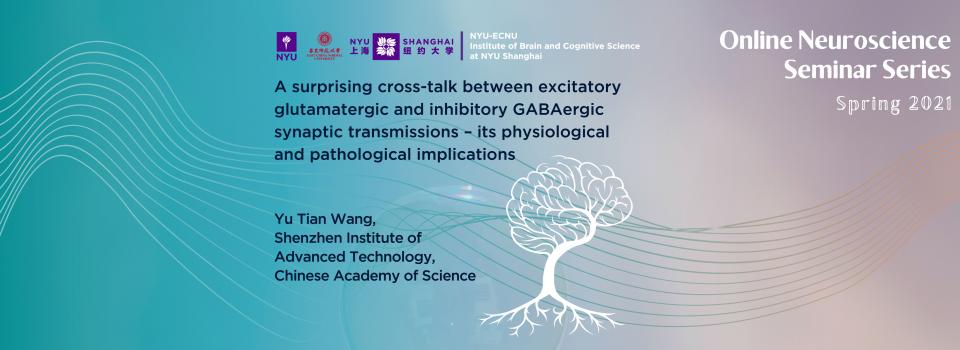
Host: Shuai Liu, East China Normal University
Abstract
Maintaining a proper level of synaptic excitation-inhibition balance is required for normal brain functioning; and its imbalance contributes to the pathogenesis of many brain disorders including neurodegenerative diseases and mental illnesses. Here we identify a novel glutamate binding pocket in the GABAAR, at which glutamate allosterically potentiates GABAAR’s function. Importantly, we found that genetic impairment of this glutamate potentiation in knock-in mice resulted in behavioural phenotypes of increased neuronal excitability, including decreased thresholds to noxious stimuli, increased seizure susceptibility and altered cognitive functions. These results demonstrate a novel cross-talk between excitatory glutamate and inhibitory GABAAR. It plays an essential homoeostatic role in fine-tuning the excitation-inhibition balance, thereby maintaining neuronal excitability in the mammalian brain under both physiological and pathological conditions.
Biography
Dr. Yu Tian Wang (王玉田), The funding Dean, Faculty of Life and Health Sciences, Shenzhen Institute of Advanced Techonolgy, Chinese Academy of Sciences (中国科学院深圳理工大学), Professor and the holder of the Heart and Stroke Foundation of B.C. & Yukon Chair in Stroke Research in the Department of Medicine and the DM Center for Brain Health at the University of British Columbia. He was also a Howard Hughes Medical Institute International Scholar between 2001-2011 and has been a Fellow of the Academy of Sciences of Royal Society of Canada since 2006. Dr. Wang’s research focuses on understanding the molecular mechanisms responsible for regulating the function and intracellular trafficking of glutamate and GABA receptors in brain function and dysfunction.


